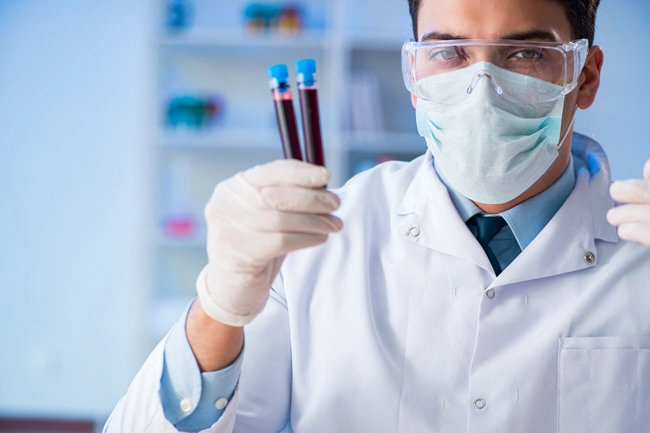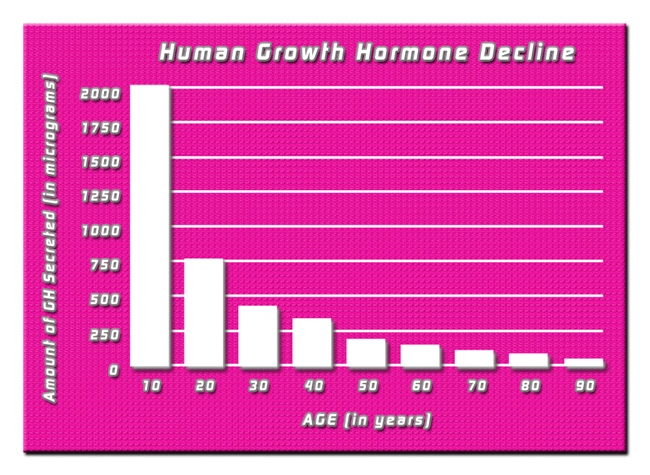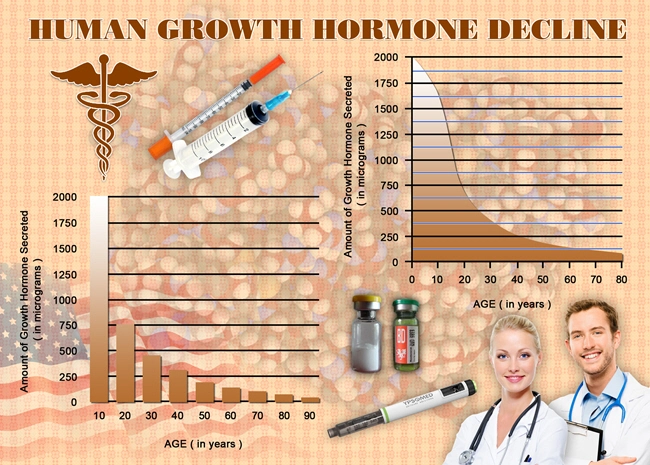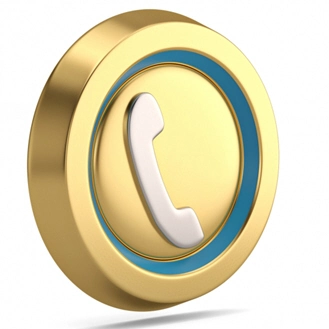
Andropause is not the same as menopause…
But men still need to be concerned about the effects of this condition
The dictionary definition of andropause is a gradual and highly variable decline in the production of androgenic hormones and especially testosterone in the human male together with its associated effects that is held to occur during and after middle age but is often difficult to discriminate from the effects of confounding factors (as chronic illness, stress, or medication use) that can depress testosterone levels.
In other words, andropause is the gradual loss of testosterone in men as they age, similar to menopause, the natural cessation of menstruation that women 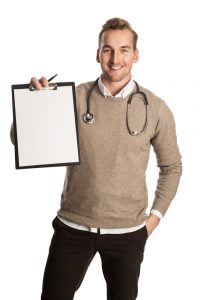 experience, usually occurring between the ages of 45 and 55 and a result of a drop in hormones.
experience, usually occurring between the ages of 45 and 55 and a result of a drop in hormones.
It is, however, crucial to stress that andropause is not the male version of menopause, according to urologist Dr. Datesh Daneshwal.
"While all women go through menopause, all men do not experience andropause. It's not supposed to happen to every man and it only affects a very small percentage of men," he says.
Andropause is an affliction when men suffer a decrease in their testosterone levels that is beyond normal. For all men, testosterone starts its slow decline at approximately age 30 and proceeds at a rate of around 10% per decade.
However, this decline can be slowed to the point where it does not become an adverse health issue that will negatively affect the quality of their lives. This is different from menopause, since that condition may occur suddenly by lowering a woman’s hormone levels that will cause ovulation to cease.
Some men may experience a far more than a normal significant drop in their testosterone levels. There is a broad range of reasons for this: obesity, lack of exercise, poor dietary choices, excess alcohol, insomnia, and failure to control stress.
When a man's testosterone levels plummet, it can cause a broad range of issues that adversely affect both their physical health and temperament. Here are just some of the signs of low testosterone (“Low-T”):
- Weak, shrinking muscles
- Increasing joint aches and pains
- Inflammation
- Depression
- Stiffness and a loss of flexibility
- Brain fog and mental confusion
- Insulin resistance that leads to diabetes and a further loss of testosterone
- Weight-gain and an increase of ugly, disease-producing fat
- Dry, wrinkled skin
- Declining libido and erectile dysfunction
- Chronic fatigue
- And more...much more
"A drop in testosterone coupled with these symptoms is what is classified as andropause. When it interferes with your well-being and health," explains Dr. Datesh.
"Many people have a misconception that testosterone is purely for a sexual function, which it is not. It is the elixir that keeps the brain sharp, affects one's mood, muscle bulk, and weight management, and also cholesterol and sugar levels. Low testosterone can cause insomnia and depression and, of course, sexual dysfunction too. Men need a certain level of testosterone to function well – in all aspects of their life – and if it dips too low, their health is at risk," says Dr. Datesh
You don’t have to suffer alone – help is available
Here is an example of a middle-aged man, “David”, who began to feel the effects of Low-T.
"I was experiencing a gradual but progressive decline of erectile function, decreased libido, frequent and more prolonged periods of low moods, decreased energy levels and frustration, sadness and despair that my interest in the opposite gender was not what it once was," says David who is now 61.
levels and frustration, sadness and despair that my interest in the opposite gender was not what it once was," says David who is now 61.
He tried Viagra to help with his sexual dysfunction, David decided to seek medical help when the symptoms persisted.
He stated that "For many years, l absorbed myself in my work and largely shrugged off and just accepted my symptoms without question. Since retiring a few years ago, l have had the time to become more aware of the physical and psychological fallout these symptoms have been having on me. The biggest psychological symptom was the diminishing confidence that l keenly felt in pursuing new relationships with women (l am, and always have been, a single guy) not least because l was conscious of the increasing difficulty of consummating such relationships.
"On a physical level, l felt myself becoming more anxious and subject to low moods as well as experiencing decreasing energy levels. I felt that l owed it to myself to get my symptoms properly evaluated by qualified professionals in this area," he said.
David was diagnosed with hypogonadism, a condition where the body doesn't produce enough testosterone which can occur at any age, often from injury or infection. He is now undergoing testosterone replacement therapy as well as medication for erectile dysfunction which he says has helped him enormously.
"Physically, l feel more energized, l have a stronger libido and my erectile functioning difficulties have been greatly improved, with further improvements anticipated after further testosterone injections. Psychologically, my confidence in interacting with women has been greatly boosted – l think this is the most dramatic change l have noticed.
"My advice to other men who are going through this is to not ignore the symptoms but to take action! Go and get specialist advice initially from your doctor and better still from a Urologist who has special expertise in this area. Please do not be embarrassed about talking through your symptoms with a doctor or urologist, particularly around erectile dysfunction. Remember that these medical people have seen and heard it all before many, many times. ln most cases your symptoms are likely to be physiological rather than psychological and can be resolved with treatment," says David.
Don’t be afraid to admit your condition
It is an unpleasant fact that in the minds of many men there is a stigma attached to admitting that they have lost a considerable amount of their manhood. Consequently, men rarely seek medical help even when the symptoms can be affecting their life significantly, notes Dr. Datesh.
"There is a stigma associated with this, unfortunately. And that's because we immediately associate testosterone with sexual function. That's why we need to raise 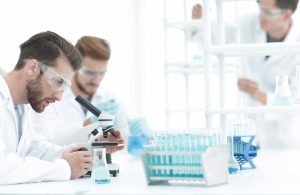 awareness about how men need healthy levels of testosterone to lead a healthy life all around. If you are over 40 and are not feeling yourself – notice that you put on weight, lose muscle bulk, emotional instability, find you are no longer attracted to your partner anymore, come and get tested. All it takes is a simple blood test and if it is because of low levels of testosterone, there is a solution now. You can get treated and change your life not just for yourself but for your family too," stated the urologist.
awareness about how men need healthy levels of testosterone to lead a healthy life all around. If you are over 40 and are not feeling yourself – notice that you put on weight, lose muscle bulk, emotional instability, find you are no longer attracted to your partner anymore, come and get tested. All it takes is a simple blood test and if it is because of low levels of testosterone, there is a solution now. You can get treated and change your life not just for yourself but for your family too," stated the urologist.
Dr. Datesh continued: "Hormone replacement is science though and cannot be administered simply without ruling out a few things. First and most importantly, we have to make sure that the patient has no signs of prostate cancer because testosterone is fuel for prostate cancer cells. Second, while testosterone administered externally may help with a man's virility, it may affect his fertility. These things have to be discussed with the patient before he starts on treatment."
How long a patient needs to continue treatment really depends on the individual, he says.
“I have had patients who, after a couple of doses, were feeling better and able to resume an active lifestyle which can stimulate the body's ability to produce its own testosterone," he explains.
Our clinics have the answers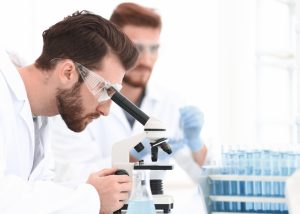
At our clinics, we will determine the best treatment options for you. There is a broad range of testosterone replacement regimens available: injections, pills, gels, and patches. We will discuss each of these options with you in detail and give our recommendations.
We also make safety a top priority and we consider any and all possible adverse side effects and give you detailed instructions on all aspects of your treatment.
Once you have begun your treatment regimen, we will closely monitor your progress and results.
But we don’t stop there
In addition to testosterone, we will develop a holistic program to ensure that you will obtain maximum benefit from your testosterone therapy.
It begins with fitness. Resistance training has been proven to boost testosterone naturally. Aerobic exercise has been shown to boost mood due to the massive  flooding of endorphins released during training. As a bonus, both types of exercise strengthen the cardiovascular system. We will consider your current condition before recommending a fitness routine.
flooding of endorphins released during training. As a bonus, both types of exercise strengthen the cardiovascular system. We will consider your current condition before recommending a fitness routine.
We will also give detailed nutritional guidance, and give tips on sleep, hydration, and reducing stress. Our testosterone therapy can work wonders on its own. Just think about what it can do when our therapy teams up with a healthy lifestyle!
Contact us for a free, no-obligation discussion concerning the benefits that testosterone replacement therapy can deliver to you!
Reference
https://www.thestar.com.my/lifestyle/family/2020/10/28/andropause-not-the-same-as-menopause-but-needs-to-be-addressed
Contact Us Today For A Free Consultation
Dear Patient,
Once you have completing the above contact form, for security purposes and confirmation, please confirm your information by calling us.
Please call now: 1-800-380-5339.
Welcoming You To Our Clinic, Professor Tom Henderson.

- Our HGH Clinic And Web Site Privacy Policy [Last Updated On: May 23rd, 2019] [Originally Added On: December 14th, 2017]
- Idaho HGH Clinics [Last Updated On: December 22nd, 2023] [Originally Added On: March 19th, 2018]
- Injectable HGH Prescriptions In Cheyenne, Wyoming [Last Updated On: September 19th, 2023] [Originally Added On: March 3rd, 2019]
- Injectable HGH Prescriptions In Milwaukee, Wisconsin [Last Updated On: October 4th, 2023] [Originally Added On: March 3rd, 2019]
- Injectable HGH Prescriptions In Madison, Wisconsin [Last Updated On: August 25th, 2023] [Originally Added On: March 3rd, 2019]
- Injectable HGH Prescriptions In Green Bay, Wisconsin [Last Updated On: August 1st, 2023] [Originally Added On: March 3rd, 2019]
- Injectable HGH Prescriptions In Charleston, West Virginia [Last Updated On: November 29th, 2023] [Originally Added On: March 3rd, 2019]
- Injectable HGH Prescriptions In Vancouver, Washington [Last Updated On: February 18th, 2025] [Originally Added On: March 3rd, 2019]
- Injectable HGH Prescriptions In Tacoma, Washington [Last Updated On: January 16th, 2025] [Originally Added On: March 3rd, 2019]
- Injectable HGH Prescriptions In Spokane, Washington [Last Updated On: September 27th, 2023] [Originally Added On: March 3rd, 2019]
- Injectable HGH Prescriptions In Seattle, Washington [Last Updated On: December 27th, 2023] [Originally Added On: March 3rd, 2019]
- Injectable HGH Prescriptions In Washington D.C [Last Updated On: January 15th, 2025] [Originally Added On: March 3rd, 2019]
- Injectable HGH Prescriptions In Bellevue, Washington [Last Updated On: November 24th, 2024] [Originally Added On: March 3rd, 2019]
- Injectable HGH Prescriptions In Virginia Beach, Virginia [Last Updated On: January 18th, 2025] [Originally Added On: March 3rd, 2019]
- Injectable HGH Prescriptions In Richmond, Virginia [Last Updated On: January 25th, 2025] [Originally Added On: March 3rd, 2019]
- Injectable HGH Prescriptions In Portsmouth, Virginia [Last Updated On: September 13th, 2023] [Originally Added On: March 3rd, 2019]
- Injectable HGH Prescriptions In Norfolk, Virginia [Last Updated On: December 24th, 2023] [Originally Added On: March 3rd, 2019]
- Injectable HGH Prescriptions In Newport News, Virginia [Last Updated On: September 16th, 2023] [Originally Added On: March 3rd, 2019]
- Injectable HGH Prescriptions In Hampton, Virginia [Last Updated On: January 11th, 2025] [Originally Added On: March 3rd, 2019]
- Injectable HGH Prescriptions In Chesapeake, Virginia [Last Updated On: January 9th, 2025] [Originally Added On: March 3rd, 2019]
- Injectable HGH Prescriptions In Arlington, Virginia [Last Updated On: February 6th, 2025] [Originally Added On: March 3rd, 2019]
- Injectable HGH Prescriptions In Alexandria, Virginia [Last Updated On: December 13th, 2023] [Originally Added On: March 3rd, 2019]
- Injectable HGH Prescriptions In Montpelier, Vermont [Last Updated On: October 20th, 2023] [Originally Added On: March 3rd, 2019]
- Injectable HGH Prescriptions In West Valley City, Utah [Last Updated On: September 26th, 2023] [Originally Added On: March 3rd, 2019]
- Injectable HGH Prescriptions In West Jordan, Utah [Last Updated On: July 17th, 2023] [Originally Added On: March 3rd, 2019]
- Injectable HGH Prescriptions In Salt Lake City, Utah [Last Updated On: January 28th, 2025] [Originally Added On: March 3rd, 2019]
- Injectable HGH Prescriptions In Provo, Utah [Last Updated On: November 19th, 2023] [Originally Added On: March 3rd, 2019]
- Injectable HGH Prescriptions In Wichita Falls, Texas [Last Updated On: August 27th, 2023] [Originally Added On: March 3rd, 2019]
- Injectable HGH Prescriptions In Waco, Texas [Last Updated On: July 19th, 2023] [Originally Added On: March 3rd, 2019]
- Injectable HGH Prescriptions In San Antonio, Texas [Last Updated On: February 4th, 2025] [Originally Added On: March 3rd, 2019]
- Injectable HGH Prescriptions In Round Rock, Texas [Last Updated On: December 29th, 2024] [Originally Added On: March 3rd, 2019]
- Injectable HGH Prescriptions In Richardson, Texas [Last Updated On: July 1st, 2023] [Originally Added On: March 3rd, 2019]
- Injectable HGH Prescriptions In Plano, Texas [Last Updated On: February 6th, 2025] [Originally Added On: March 3rd, 2019]
- Injectable HGH Prescriptions In Pasadena, Texas [Last Updated On: August 24th, 2023] [Originally Added On: March 3rd, 2019]
- Injectable HGH Prescriptions In Midland, Texas [Last Updated On: October 10th, 2023] [Originally Added On: March 3rd, 2019]
- Injectable HGH Prescriptions In Mesquite, Texas [Last Updated On: September 12th, 2023] [Originally Added On: March 3rd, 2019]
- Injectable HGH Prescriptions In McKinney, Texas [Last Updated On: December 4th, 2023] [Originally Added On: March 3rd, 2019]
- Injectable HGH Prescriptions In McAllen, Texas [Last Updated On: August 29th, 2023] [Originally Added On: March 3rd, 2019]
- Injectable HGH Prescriptions In Lubbock, Texas [Last Updated On: November 14th, 2023] [Originally Added On: March 3rd, 2019]
- Injectable HGH Prescriptions In Lewisville, Texas [Last Updated On: January 29th, 2025] [Originally Added On: March 3rd, 2019]
- Injectable HGH Prescriptions In Laredo, Texas [Last Updated On: October 15th, 2023] [Originally Added On: March 3rd, 2019]
- Injectable HGH Prescriptions In Killeen, Texas [Last Updated On: June 25th, 2023] [Originally Added On: March 3rd, 2019]
- Injectable HGH Prescriptions In Irving, Texas [Last Updated On: February 9th, 2025] [Originally Added On: March 3rd, 2019]
- Injectable HGH Prescriptions In Houston, Texas [Last Updated On: September 4th, 2023] [Originally Added On: March 3rd, 2019]
- Injectable HGH Prescriptions In Grand Prairie, Texas [Last Updated On: January 17th, 2025] [Originally Added On: March 3rd, 2019]
- Injectable HGH Prescriptions In Garland, Texas [Last Updated On: February 14th, 2025] [Originally Added On: March 3rd, 2019]
- Injectable HGH Prescriptions In Fort Worth, Texas [Last Updated On: October 6th, 2023] [Originally Added On: March 3rd, 2019]
- Injectable HGH Prescriptions In El Paso, Texas [Last Updated On: June 20th, 2023] [Originally Added On: March 3rd, 2019]
- Injectable HGH Prescriptions In Denton, Texas [Last Updated On: November 6th, 2023] [Originally Added On: March 3rd, 2019]
- Injectable HGH Prescriptions In Dallas, Texas [Last Updated On: December 31st, 2024] [Originally Added On: March 3rd, 2019]
- Injectable HGH Prescriptions In Corpus Christi, Texas [Last Updated On: December 23rd, 2024] [Originally Added On: March 3rd, 2019]
- Injectable HGH Prescriptions In Carrollton, Texas [Last Updated On: November 25th, 2024] [Originally Added On: March 3rd, 2019]
- Injectable HGH Prescriptions In Brownsville, Texas [Last Updated On: February 4th, 2025] [Originally Added On: March 3rd, 2019]
- Injectable HGH Prescriptions In Beaumont, Texas [Last Updated On: August 30th, 2023] [Originally Added On: March 3rd, 2019]
- Injectable HGH Prescriptions In Austin, Texas [Last Updated On: December 21st, 2024] [Originally Added On: March 3rd, 2019]
- Injectable HGH Prescriptions In Arlington, Texas [Last Updated On: January 13th, 2025] [Originally Added On: March 3rd, 2019]
- Injectable HGH Prescriptions In Amarillo, Texas [Last Updated On: July 22nd, 2023] [Originally Added On: March 3rd, 2019]
- Injectable HGH Prescriptions In Abilene, Texas [Last Updated On: January 5th, 2025] [Originally Added On: March 3rd, 2019]
- Injectable HGH Prescriptions In Nashville, Tennessee [Last Updated On: June 22nd, 2023] [Originally Added On: March 3rd, 2019]
- Injectable HGH Prescriptions In Murfreesboro, Tennessee [Last Updated On: June 28th, 2023] [Originally Added On: March 3rd, 2019]
- Injectable HGH Prescriptions In Memphis, Tennessee [Last Updated On: August 15th, 2023] [Originally Added On: March 3rd, 2019]
- Injectable HGH Prescriptions In Knoxville, Tennessee [Last Updated On: August 8th, 2023] [Originally Added On: March 3rd, 2019]
- Injectable HGH Prescriptions In Clarksville, Tennessee [Last Updated On: February 2nd, 2025] [Originally Added On: March 3rd, 2019]
- Injectable HGH Prescriptions In Chattanooga, Tennessee [Last Updated On: January 29th, 2025] [Originally Added On: March 3rd, 2019]
- Injectable HGH Prescriptions In Sioux Falls, South Dakota [Last Updated On: December 25th, 2024] [Originally Added On: March 3rd, 2019]
- Injectable HGH Prescriptions In Columbia, South Carolina [Last Updated On: February 2nd, 2025] [Originally Added On: March 3rd, 2019]
- Injectable HGH Prescriptions In Charleston, South Carolina [Last Updated On: January 31st, 2025] [Originally Added On: March 3rd, 2019]
- Injectable HGH Prescriptions In Providence, Rhode Island [Last Updated On: January 30th, 2025] [Originally Added On: March 3rd, 2019]
- Injectable HGH Prescriptions In Pittsburgh, Pennsylvania [Last Updated On: December 3rd, 2023] [Originally Added On: March 3rd, 2019]
- Injectable HGH Prescriptions In Erie, Pennsylvania [Last Updated On: January 4th, 2025] [Originally Added On: March 3rd, 2019]
- Injectable HGH Prescriptions In Allentown, Pennsylvania [Last Updated On: November 4th, 2023] [Originally Added On: March 3rd, 2019]
- Injectable HGH Prescriptions In Salem, Oregon [Last Updated On: January 31st, 2025] [Originally Added On: March 3rd, 2019]
- Injectable HGH Prescriptions In Portland, Oregon [Last Updated On: February 1st, 2025] [Originally Added On: March 3rd, 2019]
- Injectable HGH Prescriptions In Gresham, Oregon [Last Updated On: January 30th, 2025] [Originally Added On: March 3rd, 2019]
- Injectable HGH Prescriptions In Eugene, Oregon [Last Updated On: January 27th, 2025] [Originally Added On: March 3rd, 2019]
- Injectable HGH Prescriptions In Tulsa, Oklahoma [Last Updated On: December 15th, 2023] [Originally Added On: March 3rd, 2019]
- Injectable HGH Prescriptions In Oklahoma City, Oklahoma [Last Updated On: June 6th, 2023] [Originally Added On: March 3rd, 2019]
- Injectable HGH Prescriptions In Norman, Oklahoma [Last Updated On: October 19th, 2023] [Originally Added On: March 3rd, 2019]
- Injectable HGH Prescriptions In Toledo, Ohio [Last Updated On: September 17th, 2023] [Originally Added On: March 3rd, 2019]
- Injectable HGH Prescriptions In Dayton, Ohio [Last Updated On: September 15th, 2023] [Originally Added On: March 3rd, 2019]
